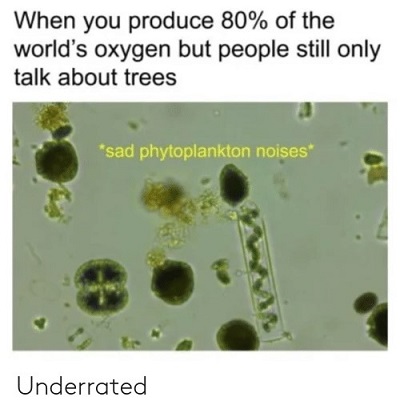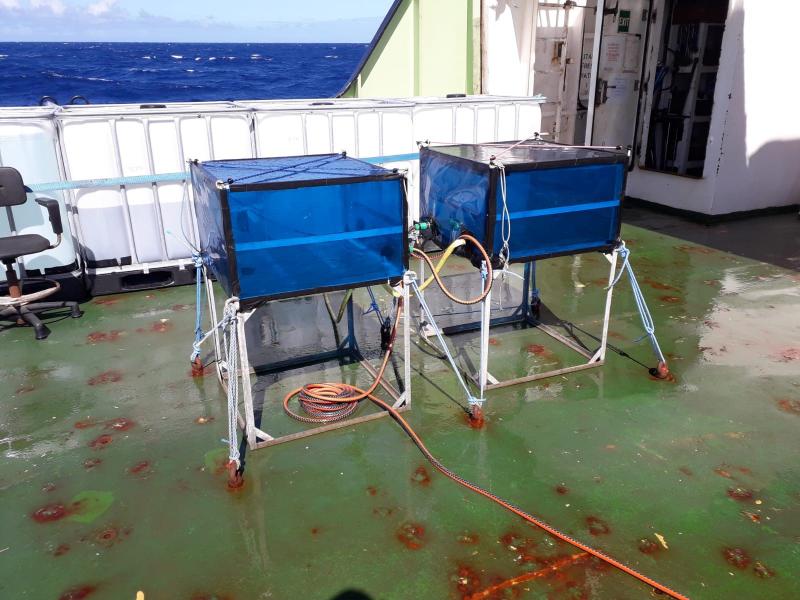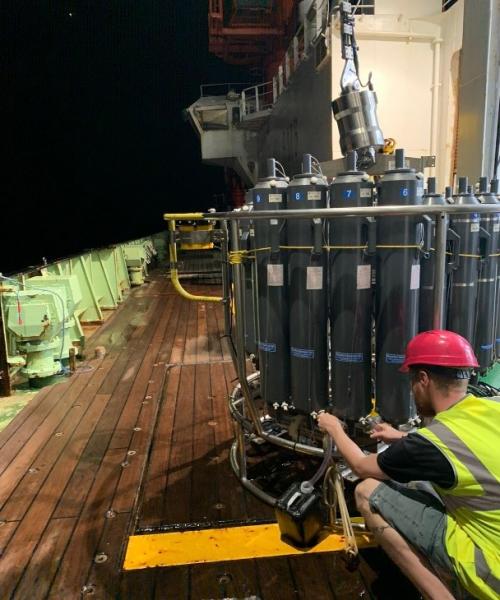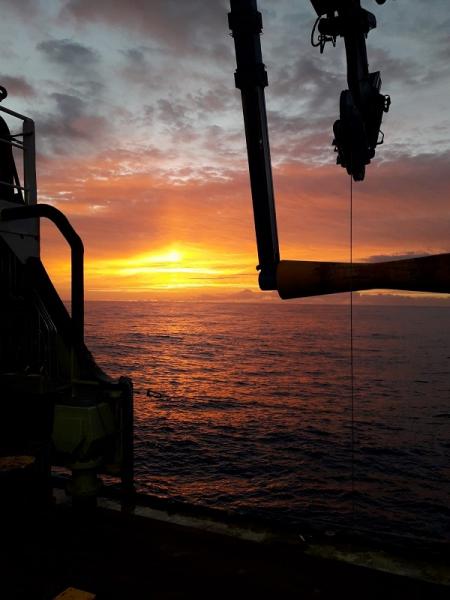The RSS James Cook is approaching the mid-Atlantic ridge and the crew and scientists conducted 84 CTD-casts so far. The atmosphere on board is great and very productive, of course, a barbeque and a self-built pool on the back deck are nice treats on long days of work.

As we leave the “desert” of the western basin of the Atlantic, chances to see wildlife are steadily increasing and so far, a shark and squids visited the ship during night. Next to flying fish, two whales have been seen already… hopefully more to come! However, despite these encounters one scientist on board is more interested in the smallest organisms floating around in our oceans, phytoplankton.

I started my PhD at the University of Portsmouth last October and study the response of the phytoplanktonic community to altering environmental conditions, including changes in nutrient availability. To do so, I conduct on-deck incubations, pushing the seawater system to an even further phosphorus limited environment that it already is. This is especially important regarding rising anthropogenic pressure and changing climate with more drastic and frequent extrema. Like we humans take a dip in our swimming pool on deck, the incubations take a nice bath in their pools.

In addition to the incubations, I sample stations along the whole transect of the cruise and collect samples for dissolved and particulate organic carbon, nitrogen and phosphorus, flowcytometry and chlorophyll to produce nutrient and chlorophyll maps of this part of the Atlantic. For me this means long days, short nights and a lot (a lot!) of filtering. Until this day I filtered over 800 litres of seawater and produced more than 300 samples. Except for chlorophyll, these will be analysed back in the UK. Chlorophyll is analysed on the ship with a fluorometer and the results will be used to calibrate the CTD-sensor.
Despite all this work, the experience to cross the Atlantic is unique. Not only escaping the rainy days in the UK but also the feeling to not have anything underneath for miles is hard to picture in the mind. Furthermore, long-lasting friendships and professional connection are being made within the small community on the boat. Some impressions are hard to put into words, so I will finish this blogpost with a picture which connects the pleasures and duties when joining a research cruise. I leave everyone room for his or her own interpretation…
Written by Lukas Marx.
